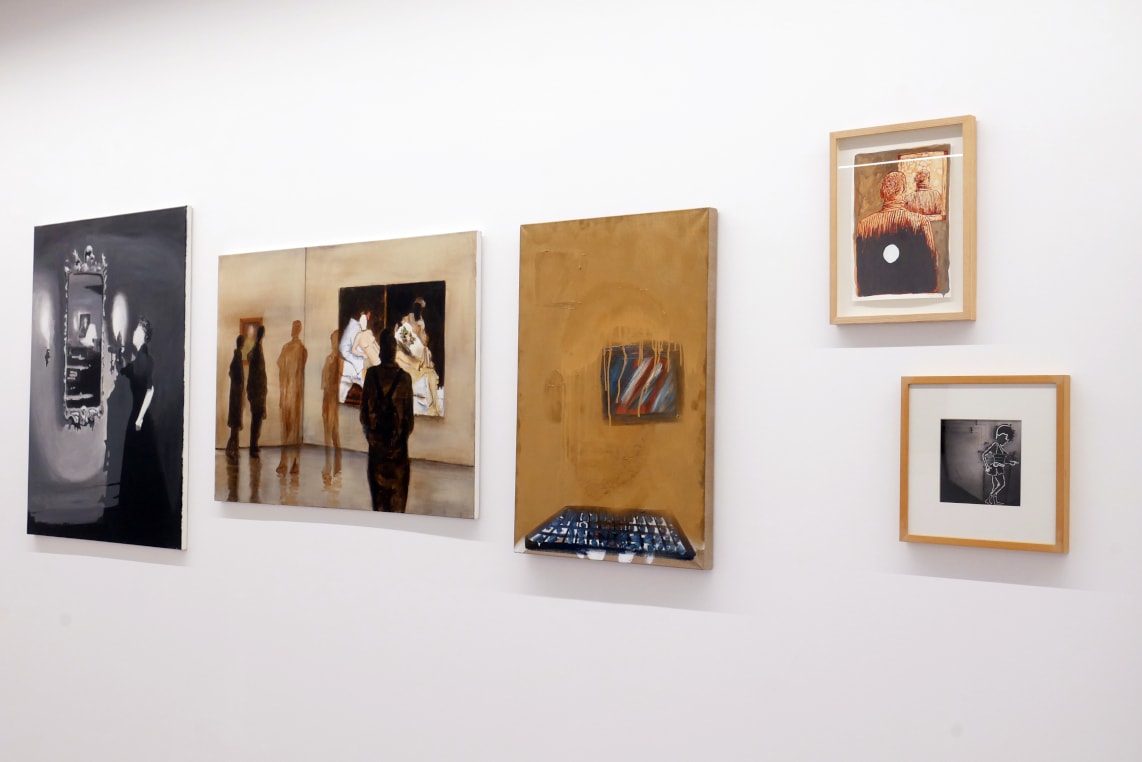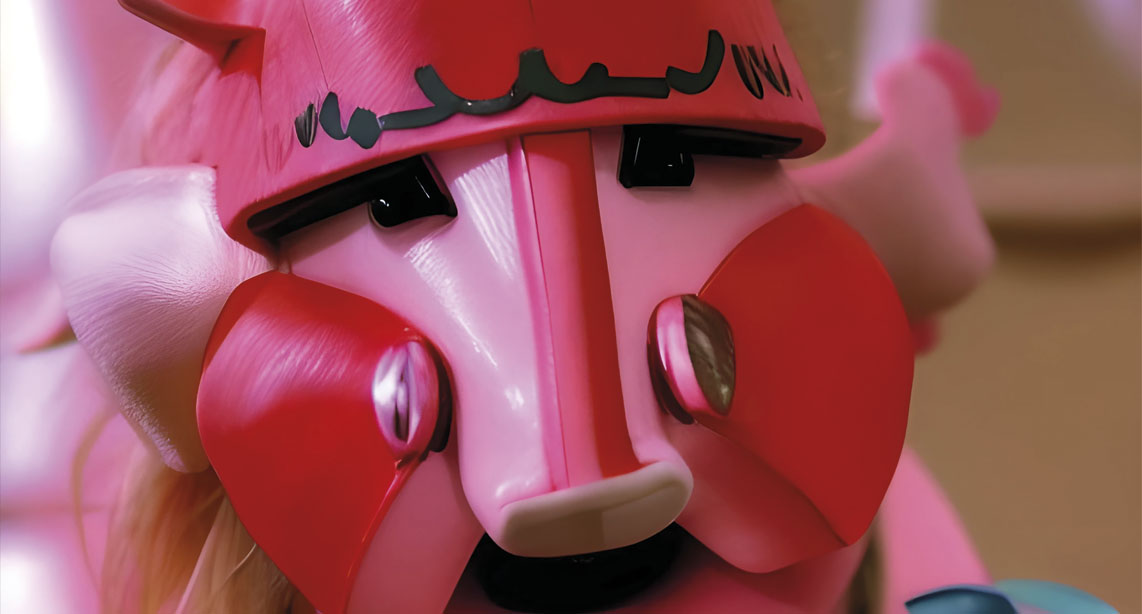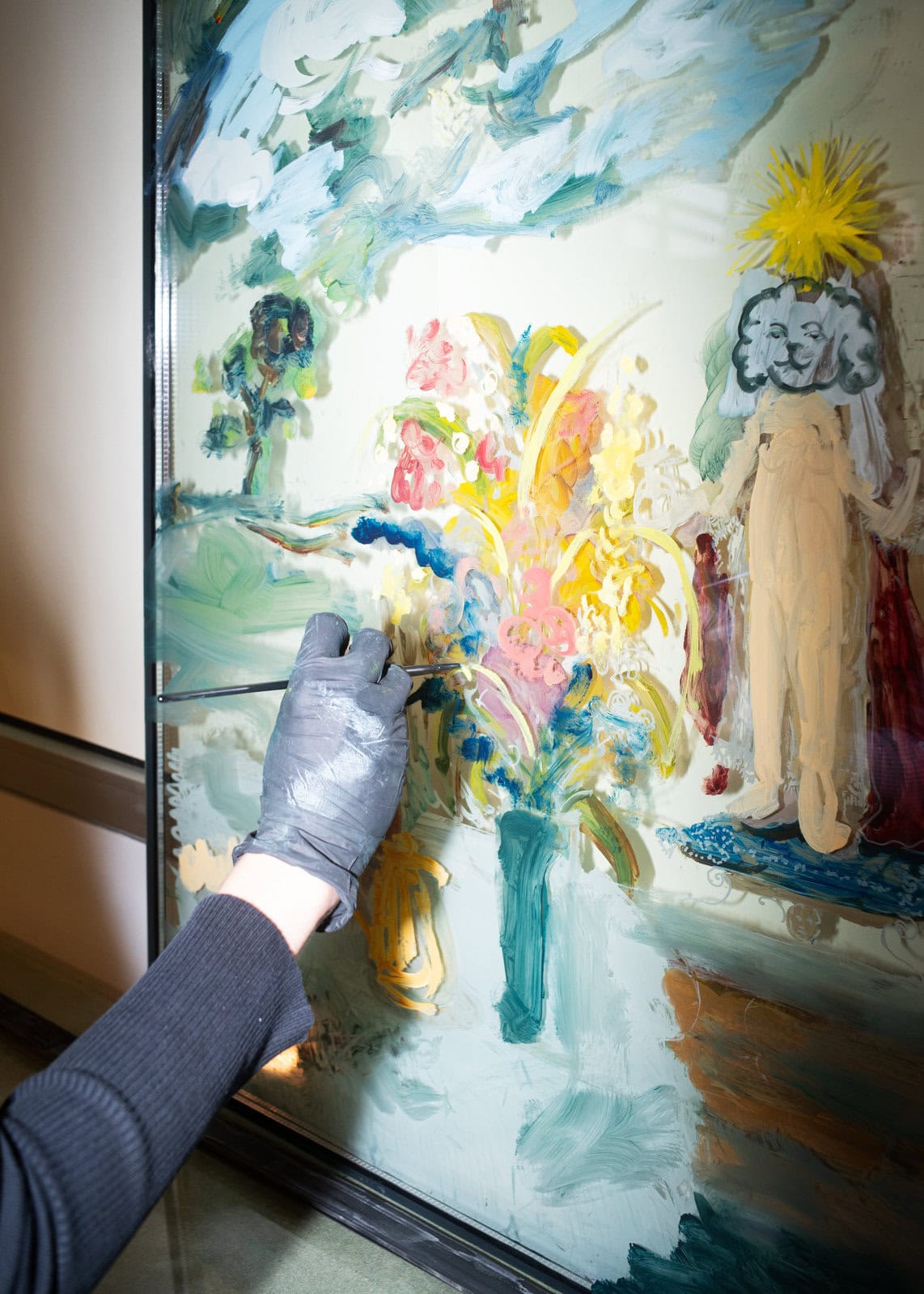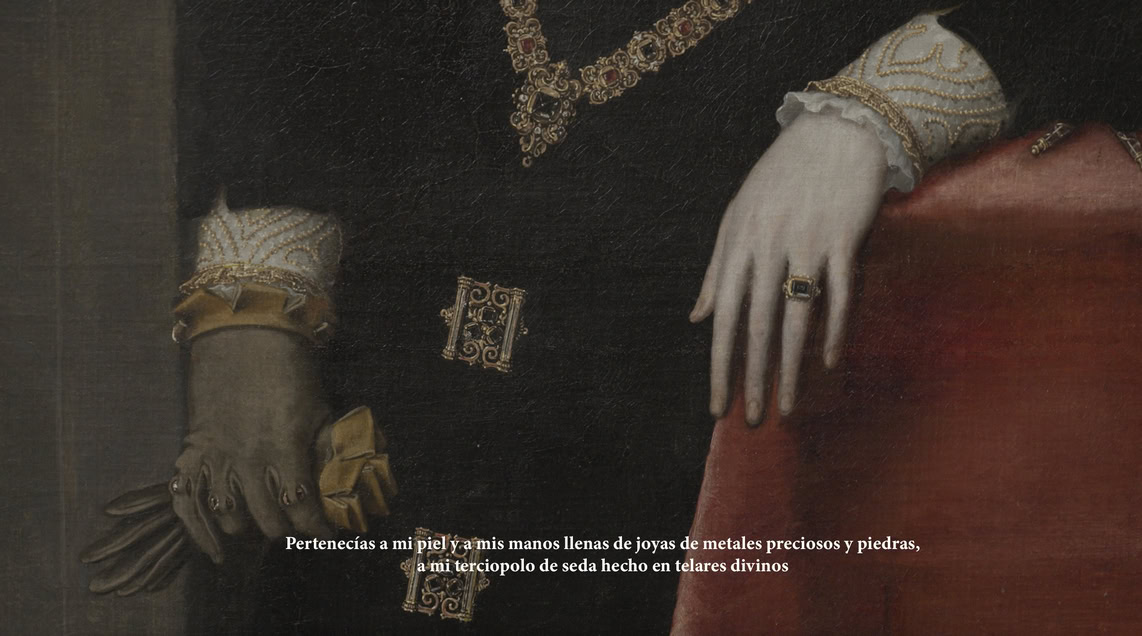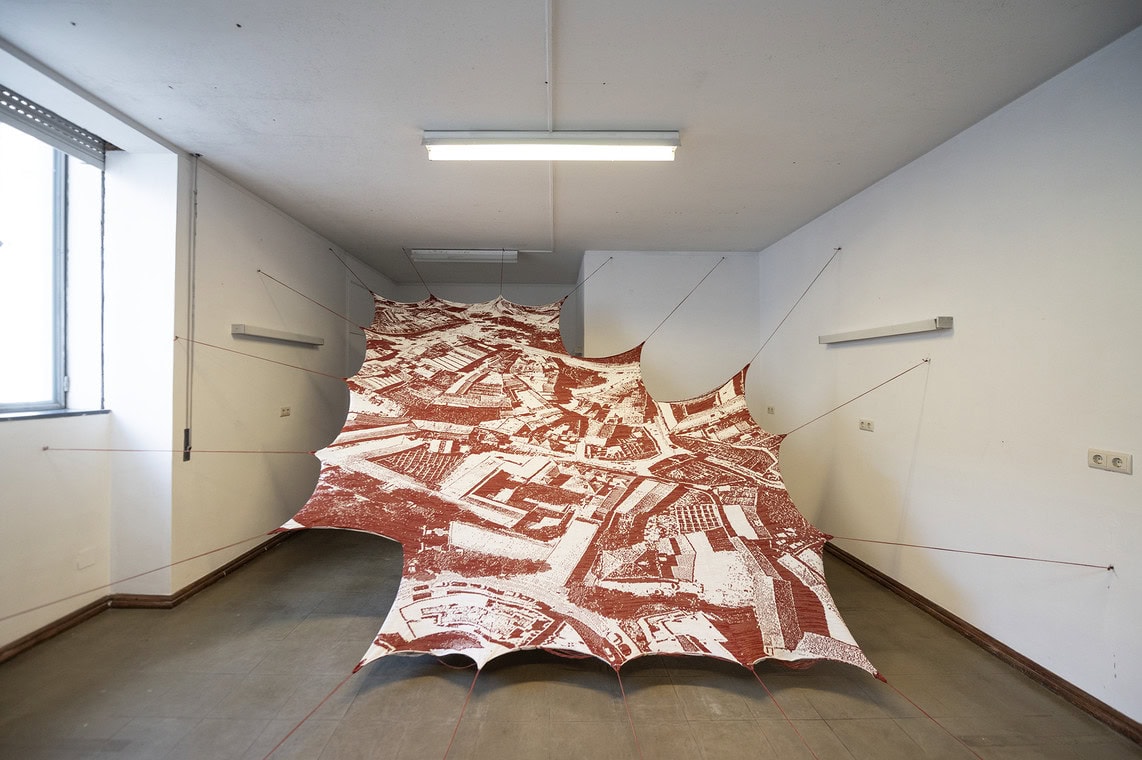And in you /
the sea and the world begin. [1]
Earth, matter, mother, womb. All one that is a seed. A beginning since the beginning. Across time, the land germinates – it originates, expands, and builds both place and landscape. Virgínia Fróis, Marta Castelo, and Maja Escher have thus conceived a work visible in the group exhibition Mater, at Pavilhão Branco of Galerias Municipais de Lisboa until June 11, 2023, curated by João Rolaça, member of Oficinas do Convento.
With attachment and affection for the earth and all the elements of Nature and Man, there are three women, three distinct generations, and a transition from one to the other. This reminds us of the perpetual movement of the clock and the evolution of work and its aesthetics, provided it complies with what is harvested from the earth. The project is born from the tight friendship between the curator and artists; whose syntony is made evident in the exhibition through conceptual coherence, values, and intentions. The profound relationship with the surrounding environment is held in common, in a gesture that embraces raw materials never produced artificially. The instinctive and particular praxis and the meaning of their issues are what distinguishes them.
The earth is a palace that looks upwards,
the sky is a palace that looks downwards.[2]
Virgínia Fróis and the analogy of the well. Analysing the deep, that which is necessary to emerge. A work made with intimacy and a sensitive experience of nature through a gesture that expresses the interior and exterior worlds. Between the sky and the ground is the well and ourselves. The Human Being is a being between the ethereal dimension (mirrored by this reservoir’s water) and the earthly one (the one that the feet touch and the body reaches). The reflection of one is the reflection of the other. Man mirrors the nature of which he is a part. In this metaphor, the artist finds this living and plural organism: our personal processes keep pace with nature’s regime. In the exhibition we see it in a web connecting elements and areas: water punctuates the clay soil, the work pião is complemented by the water in the centre, and the skeleton of the abrigo is filled with flesh with our gaze. We are before a symbolic whole that, more than emotive, is visceral. The earth revolves and evolves. O poço é o espelho do céu, a name given by Virgínia Fróis, is an ode to Man’s ancestral inheritance that learned to read nature. Mater. Where all materials are primordial – salt, wax, water, straw, branch, bone -, pawns of an immemorial geology that unveil where and how everything begins, the only certainty alongside an ephemeral present and a future at the mercy of the world’s perishability. We feel the passing of the seasons. As the artist said, “Mater, giving birth… Mater, giving to the earth”.
Marta Castelo asks matter what we can say from its inherent quality. Never going against its nature, she prefers to accept all states of mind, be they mud, dust or paste, solid or liquid, raw or cooked. The artist knows that to accept the fickleness of the elements is to touch their essence, the one that only manifests itself whole between transitory states.
A escrita da cidade, as she called it, has in the bricks the letters required to compose towns, having in the body the inscriptions that make them unique. The emergence of writing coincides with the outbreak of cities; both feed thought and incite the foundation of the world we occupy today. In this audible thought about the earth and the construction of the human, between the momentary and the fixed, bricks construct spaces of existence. When letters grew up around the earth, when agriculture transfigured the soil, a city was raised from the ground.
Towering above it, paper drawings, spontaneous traces, and an aura of artefact convergence. There are several embraces, and shelter hotspots. Painted with clay and seemingly catalogued, each is an expressive geometry between the precision of line and the audacity of form. Drawing is everywhere. As the artist says, “First, it springs from the ground, but it is also in modelled objects and paper.” (…) “Drawings are an unfinished alphabet of a language written in the world. The drawing is a gesture heralding the birth of form.” For Marta Castelo, Mater is home. To reach this haven, “let us take a closer look at nature”.
Maja Escher has within her the lower Alentejo, a site of childhood memories and blood of the past. The region, which has suffered from instability caused by water shortages, is a present that must be extolled. The aim is to rally the community, united by ecological protection and regeneration. What does it mean to destroy an ecosystem? What impact does this have on human and non-human life in the territory and its diversity? On staying in this place? We, the other, and the landscape coexist. No biodynamic system is simple or unique. The messages are on the wall, they point directions and poetic solutions for what today seems complex and imminent. A cry is a manifesto. Only those who are not there do not hear it. With her typical aesthetics and her conscience always alive and directed towards the telluric, Maja Escher is between installation and research, the past and the present. To discuss the now, she looks for vernacular knowledge, resorts to a spiritual sense, to intuitive experience derived from knowledge of the earth and natural elements, a kind of shamanism that places man on the same level as his surroundings, as a component of them. How many times does the water sleep? Such is the artist’s invitation to this ritual based on the primordial and native to stress the urgency of the cooperative act and respect; never less than the warning call preceding it. Mater is about loving the territory and preserving its origin. It means not letting it fall asleep.
Mater, co-produced by Galerias Municipais / EGEAC and Oficinas do Convento, also expresses the mission, the exercise, and the fruits of this cultural association. Which, as always, is intimately related to the context – the landscape and the community to which it belongs -, in a work based on researched and workshop technical-scientific knowledge, and the intuition and practice found in the field and perfected there.
Three women, three distinct generations, convey a statement that recognizes in the “freshness of the clay the probability of germination”, according to Virgínia Fróis. The earth is the starting point, the arrival point, and the artist’s path. Mater: there is time to be more, but let us acknowledge that we are one from the beginning.
